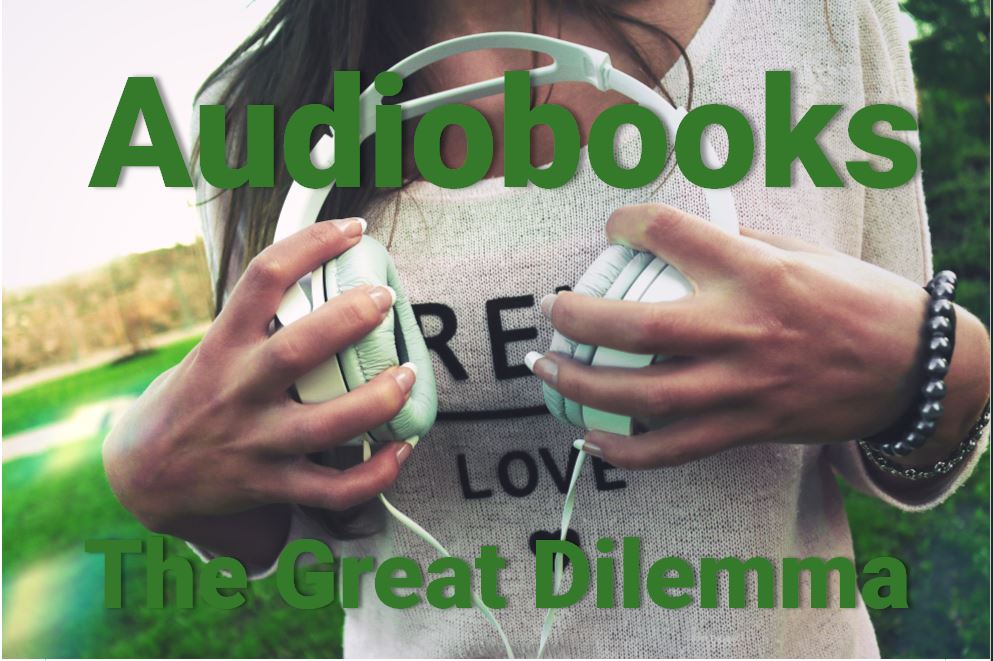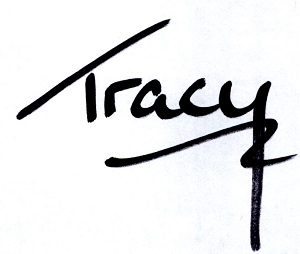
At least a couple of years ago, a reader — let’s call her Sue — contacted me and asked in fairly demanding tones why I didn’t offer all my books as audiobooks.
I politely replied that it was an expensive undertaking for indie authors, although producing audiobooks was on my list of things to do. (It still is.)
In response, Sue sent me a long list of links to resources for producing audiobooks and the offer to match me up with voice talents, accompanied by urging me to develop audiobooks sooner rather than later.
I can understand and even empathize with Sue’s haste and frustration. I feel much the same way when an author doesn’t offer ebook editions of their book (yes, such non-ebooks do exist!), because I read ebooks almost exclusively. I would only read ebooks if it was purely up to me. Most of the time, I work to acquire an e-edition rather than crack the spine of an unwieldy print book. (And if you’re curious about why, you might find this article helpful.) So I can understand completely why Sue thought nudging me toward audio books would add a favourite author to her list of books to listen to.
If you’ve ever wondered why I don’t yet offer your favourite format for your “reading” pleasure, here are a few interesting facts about audiobook production for indies:
1. The audiobook market is huge, and getting bigger all the time
It has a long way to go before it matches ebooks for units sold, but it is increasing at astronomical speeds.
2. Amazon nudges books with print, audio and ebook formats higher up the rankings.
Amazon prefer to offer all three formats to readers. Therefore their algorithms favour books that have the three formats.
On the other hand:
3. It is very expensive to produce audiobooks
Indie authors pay the same rate for voice talents, editing and production that the legacy publishers in New York pay. An author is often looking at mid- to high-four figures to produce a single novel as an audiobook and this is for the simplest types of audio. If there is any dramatic content added to the audio — music, actors, sound effects — the price zooms.
4. Indie authors not located in the US or UK must pay more upfront.
UK and US authors can use Amazon’s ACX (Audio Creation eXchange) to arrange collaborative profit sharing agreements with narrators, actors and sound engineers. This is not an option for any other authors. There are pros and cons to using ACX and indie authors debate them a lot. However, ACX is the only minimal-upfront-cost method for producing audiobooks right now.
5. It still costs money and a lot of time for an author to narrate their own stories.
Some authors simply should not narrate their own stories, for a number of reasons, including the fact that most of us are classic introverts and the whole idea freaks us out. Authors that have pleasant speaking voices and the guts to read their own stories still have upfront costs, including renting a sound studio, or building one at home.
Then there is a fairly steep learning curve to master the techniques of reading the book, which is a real time sink. Add to that the time spent actually narrating the story. It is not a simple read through — it can take anywhere from twice to five times as long as the finished audio file to get a straight narration recorded, then it must be edited and produced. If the audio involves added creative elements (music, sound effects, actors) the time for recording, editing and production increase.
All of the above is simple throat-clearing. The fact is, an indie author would be crazy not to produce audio books as soon as they can afford to. It is still on my to-do list (as I mentioned above).
Keep all this in mind for a moment.
I came across an article on Digital Book World the other day: “Audiobooks Make Me Feel Like I’m Cheating“. Berkowitz confessed to having a love-hate relationship with audiobooks. He likes the convenience they offer, except that when he listens to audiobooks, he’s doing something else while he’s listening. This is a common phenomenon. People consume stories while going to work, while shopping, while house cleaning, while doing a hundred other things. It is a master strategy for multi-tasking.
And there-in lies the rub for me.
I don’t listen to audiobooks. I have bought exactly two of them, when Amazon offered the audio to me at a too-cheap-to-refuse discount when I bought the ebook. I have never finished listening to either of those books — although I have read the ebook versions.
I have three issues with audiobooks:
I don’t think multitasking is effective.
Bear in mind that I am considered to be a fairly productive person. I have written and released 20 books so far this year, and managed to have a life while doing it. I do not multi-task. Ever. If my hands are occupied and my mind is idle, I will listen to music and concentrate on what I am doing. I get more done that way and I do it better than I would if I was trying to do something else at the same time.
I don’t think listening to stories is effective.
Fiction is a text-based medium (usually!). If the writer has done their job, the story images in their head are transferred to the reader’s head via the written word. When you are doing something else as well you miss details of the narrative. You don’t get the full picture.
Even if you are sitting still and listening (which I just can’t do!), there is so much more going on in the sound file that you still won’t build a full image in your head. Narrators speak more slowly than the slowest reader reads. While you’re processing what they say at spoken-word pace, your mind is flitting. You’re thinking about how odd or how perfect the narrator’s voice is for the story. You’re wondering if the narrator was blushing while they read that steamy sex scene. You’re wondering what that little sound blip was and whether it was something that crept into the audio file by accident. You’re looking at your hands and thinking you should file your nails.
There’s a lot of “spare” time when you’re listening to someone talk where your mind is idle and coming up with all sorts of extraneous ideas that pull you out of the story.
When you’re reading a story, reading is all you do. If you’re a proficient reader (and I suspect that’s just about everyone reading this post!), then reading is invisible. You absorb the story directly into your mind, at the perfect pace for you.
Listening takes longer than reading.
I referred to this just above. If you’re already doing something else while listening, then perhaps it doesn’t matter to you how long it takes for the story to proceed. But then you’re missing parts of the story.
If you’re not doing something while you’re listening, then why are you listening at all? You’d be better off reading!
___
It would be fair to say I am in a mild dilemma about audiobooks. They’re a fuss to produce and cost a lot of money up front, but more than that, I’m not sure I like the idea of readers “consuming” my stories with only half their minds on the narrative.
It isn’t my ego saying that either. I’m not writing deathless literature — I write to entertain, and I love binge reading as much as the next person. However, my stories are complex and lots of readers and reviewers say they can “see” the story and characters in their heads. I worry that someone listening to an audio version of my book would miss the word-pictures for all the reasons I’ve mentioned above. Those listeners would not enjoy my stories as much as someone who reads them.
Do I really want to put a book out there that readers won’t thoroughly enjoy?
Audiobooks is a train I can’t stop. I know that. But still, I’m torn.
Do you listen to audio? Why do you prefer audio over text? I would really like to hear your opinion!
Cheers,

Get the news that no one else does. Sign up for my newsletter.
For a short while, you get a bundle of ebooks, free, when you sign up, as a Starter Library. Details here.
Tracy, I agree with all you’ve written, but there’s another plus that you’ve missed. some readers have poor/non existent sight and for them audio books are the only practical way to access a story.
I’ve never read an audio book, have always been an avid reader, book collector and reread old favourites too. Then I took the plunge into eBooks – though it was my husband that made the push, tired of falling over towers of dusty books everywhere (I’d rather read than dust!). I didn’t think eBooks would replace “real” books for me yet from the first page I was hooked, have read very few print books since.
The eyesight issue comes into play for me though as I’ve always been very, very shortsighted, and the last few years have developed issues with reading vision too, throw in I’ve now got double vision so spec have to have prisms in, and now both ranges so extreme I can’t have varifocals but have to have two pairs specs on me all the time – aaannd I’ve cataracts forming, which could be inoperable because of the other sight issues, and I’m looking at little or no sight in a few years. Currentlt eBooks are a life line as I can alter text size, font and brightness so I’m OK. I’ve over 5K books on my amazon cloud….maybe 10-15% I’ve bought but most free or review ones. I thank technology everyday and whoever came up with this idea as print is now beyond my visual range.
I can see and empathise with all you say about cost for indie authors, and understand why that adds to the cost for readers/listeners but of course that’s a vicious circle too – cost more = less buyers. even a free book costs an extra £3-4 for audio and for those like me who devour books, I read around 12 – 20 a week, that’s too much 🙁 even though I understand why it costs.
I’m hoping for two thinks, either surgery to advance so that they can deal with my eye issues, or technology to advance so there’s some way for indie authors to create audio books at a reasonable cost.
I’ve gone on a bit now…sorry, didn’t intend to get quite so detailed/boring * blush*
Hi Jeannie:
Thanks so much for sharing your thoughts. I appreciate it.
I did think of people with poor or no vision when I was writing the article, and I can understand how audio books can change your life. It is people like you and those who can enjoy stories no other way than with audio books for whom I would work to get my books into audio format.
I think that you and others who have emailed me directly have underlined this fact and I will keep it in mind going forward. For many people, not just the blind and low-visioned, audio books are the only option. I believe it is a poor second, only because I have the privilege of being able to read “normally”. If it’s the only option, though, it’s far better than nothing.
Thanks again, Jeannie.
Cheers,
t.